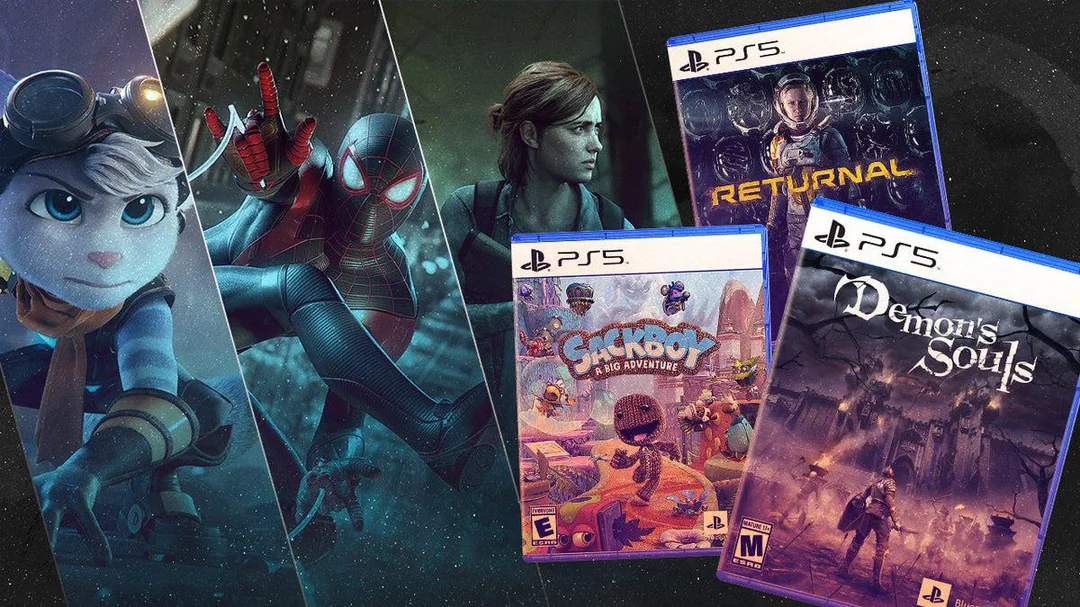The Evolution of Gaming: A Look at Digital and Physical Distribution
The gaming industry has undergone a significant transformation over the past few decades, particularly in the realm of distribution methods. Initially, gamers relied heavily on physical discs, which were sold in retail stores around the world. This traditional model allowed players to purchase games in tangible formats, such as CDs and cartridges, thereby establishing a direct connection between consumers and physical distribution channels.
With the advancement of technology, particularly the expansion of high-speed internet access, there has been a notable shift towards digital keys and downloads. As internet speeds steadily increased, downloading large files became increasingly feasible, leading to the emergence of online game marketplaces. Platforms such as Steam, the Epic Games Store, and others provided gamers with convenient access to a wide array of titles without the need for physical copies. This digital distribution model significantly altered purchasing dynamics, allowing players to buy and download games from the comfort of their own homes.
Alongside technological advancements, the decline of physical retail stores has further accelerated the shift towards digital formats. Many traditional game retailers have struggled to compete with the ease and instant gratification offered by digital downloads. The pandemic also accelerated this trend, prompting gamers to embrace digital purchases as lockdown measures restricted physical shopping. As a result, a new generation of gamers has emerged, who generally prefer the convenience and immediacy of digital distribution while both casual and hardcore gamers continue to evolve their habits and preferences to align with these shifts in the industry’s landscape.
Consequently, digital keys have not only reshaped the purchasing experience, but they have also influenced how games are marketed, updated, and supported. Game developers can now easily push patches and updates directly to consumers, enhancing the overall gaming experience. The evolution of gaming distribution reflects broader changes in technology and consumer behavior, establishing a new paradigm that prioritizes speed, accessibility, and convenience.
Advantages and Disadvantages of Digital Keys
The landscape of gaming has shifted dramatically in recent years, especially with the advent of digital game keys. One of the primary advantages of utilizing digital keys is the instant access they provide. Once a purchase is made, games can be downloaded immediately, negating the need for physical media such as discs. This immediacy is particularly appealing to gamers who are eager to begin their gaming experience without delay.
Additionally, digital keys offer considerable ease of storage. Traditional physical copies require space and can be cumbersome to manage, while digital games reside on cloud storage or hard drives, freeing up physical space and allowing for more organized game libraries. Furthermore, online platforms frequently offer sales and discounts that can’t be matched by physical retailers. Regular promotions on popular gaming platforms ensure that gamers can acquire titles at significantly reduced prices, enhancing the overall value of digital ownership.
However, there are notable drawbacks to consider. Concerns regarding ownership arise, as purchasing digital keys does not equate to possessing the game itself. Rather, users are often granted a license to play, which can lead to complications regarding access in the event of account bans or platform changes. Additionally, licensing limitations may restrict the ability to resell or transfer ownership of digital keys, a flexibility typically enjoyed with physical discs.
Moreover, a stable internet connection is often a prerequisite for downloading and playing games, which can pose a challenge for gamers in areas with unreliable internet service. While digital keys present a modern solution for game acquisition, weighing these advantages against the disadvantages is crucial for any potential buyer. Understanding these elements can significantly inform one’s decision on whether digital keys deliver the ideal gaming experience aligned with personal preferences.
The Case for Physical Discs: What they Offer in 2025
As the gaming industry continues to evolve, the debate between digital keys and physical discs remains prevalent. In 2025, there are compelling reasons to consider the advantages of physical discs, which provide a tangible value that digital formats cannot replicate. The collectibility of physical copies is one notable aspect, with many gamers cherishing the ability to display their video game collections. For enthusiasts, owning a physical disc can evoke nostalgia and a sense of pride, elements that digital downloads often lack.
Moreover, physical discs offer significant resale potential. Should a gamer choose to part ways with a game, physical copies can be easily sold or traded at local retailers or online marketplaces. This market for used games enables gamers to recoup a portion of their initial investment and create a more sustainable gaming experience. In contrast, most digital purchases are non-transferable, effectively locking consumers into their purchases without any possibility for resale.
Another benefit of physical discs is the independence from digital distribution platforms. Gamers who experience limited internet connectivity or slow download speeds may find that relying on digital games can be frustrating. Physical copies eliminate the need for downloading large files and allow immediate access to gameplay. Furthermore, issues such as server downtime or platform-specific restrictions can cause disruptions in access to digital titles. By contrast, a physical disc can be played wherever the console or PC is located, making it a reliable option for those who prioritize uninterrupted gaming sessions.
In summary, physical discs continue to hold relevance in 2025 for a variety of reasons. The unique benefits they offer—collectibility, resale potential, and independence from digital platforms—ensures that they remain a valued choice among gamers in an increasingly digital landscape.
Making the Choice: Digital or Discs for PC and Console Gamers?
As the landscape of gaming continues to evolve, the decision between digital keys and physical discs becomes increasingly significant for both PC and console gamers. When considering which option suits one’s gaming preferences in 2025, several factors warrant careful examination. Price is undoubtedly a central consideration—digital games often come with sales that can make them more affordable than their physical counterparts. However, bundles or used discs may offer competitive pricing, presenting valuable savings for budget-conscious gamers.
Accessibility is another critical factor. Digital keys provide instant access to games, allowing players to start their gaming experience without waiting for shipping or visiting retail stores. This immediacy is advantageous, especially for users with limited mobility or those living in remote locations. On the other hand, physical discs offer the tangible experience of owning a game, which can be appealing to collectors who value the artwork and packaging associated with their favorite titles.
Maintenance of the game library also differs significantly between the two formats. Digital games generally require management of storage space on hard drives, whereas physical discs demand careful handling to avoid scratches or damage. However, digitally owned games can also lead to issues such as account restrictions and potential loss if licensing agreements change. Furthermore, the user experience may vary based on gaming genres. For example, those engaged in community-based gaming and multiplayer experiences might benefit from the immediacy of digital downloads, while single-player enthusiasts may be less concerned with digital access.
As gaming technology continues to advance, the future may lean even more heavily towards digital ownership, making it essential for gamers to anticipate these shifts. Ultimately, by evaluating personal gaming habits and preferences, players can make an informed choice that caters to their unique lifestyle, ensuring a satisfactory gaming experience in 2025 and beyond.



No responses yet